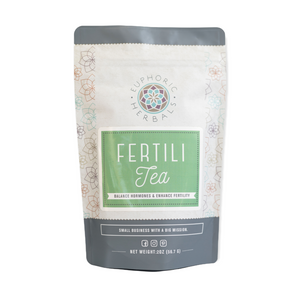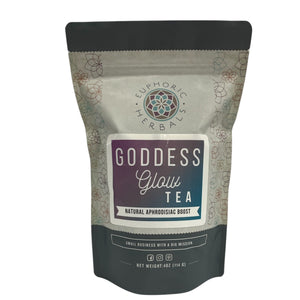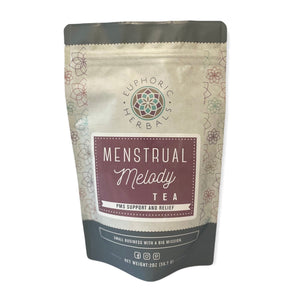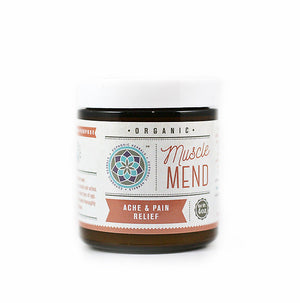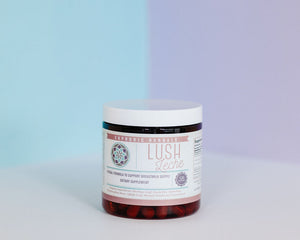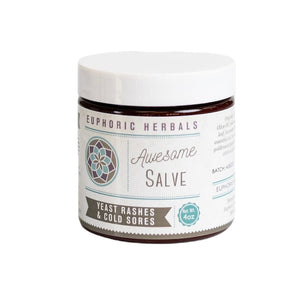People have used herbs as natural aphrodisiacs since ancient times. One such herb is called damiana, which also has several other health benefits.
Believed to have first been used by civilizations like the Aztecs, Mayans, and Guaycura, damiana leaf has been slower to make its way into modern herbal medicine. (1)
Here's more about this unique herb, the benefits of damiana, and how to use it, especially to boost your libido.
What Is Damiana Leaf?
Damiana (Turnera diffusa) is a small shrub native to Central America, South America, and regions of the southern U.S. Also known as Mexican holly, it produces small yellow flowers and has aromatic, serrated leaves that are used medicinally.
The indigenous Guaycura people, who lived in a region of what is now Mexico, were likely the first to use this herb. It then spread in use as they traded it with the Aztecs.
The most traditional use for damiana was to boost male and female libido, but it was also used for a wide range of other ailments. (2)
Today, you can buy dried damiana leaf to use in herbal remedies. However, it's most often mixed with other herbs and made into teas or tinctures for its health benefits.
Benefits of Damiana Leaf
Boosts Libido

Damiana leaf has been used for thousands of years as a natural aphrodisiac and has benefits for boosting libido. Although traditionally used mainly by males. the herb has more recently been recognized as being highly beneficial for women as well.
The exact manner in which damiana acts is unknown, but one of the ways it works is to increase energy levels, which can also increase libido.
Few scientific studies have been done on the effects of damiana alone, but animal studies are so far confirming its traditional use as an aphrodisiac. (3)
Two other human studies investigated the effects of ArginMax for Women, a blend of herbs (including damiana), vitamins, and minerals. Both studies found that those who took this blend had increased levels of sexual desire and satisfaction as well as reduction of vaginal dryness. (4)(5)
You can try it yourself in this Female Libido herbal extract.
Enhances Mood
Along with acting as an aphrodisiac, damiana also has benefits for boosting your mood and reducing stress. It has both a stimulating and relaxing effect that can increase energy levels and decrease anxiety.
The relaxing nature of damiana and its ability to relax stress and tension also give it potential for treating insomnia.
Damiana can help with symptoms of depression, anxiety, and nervousness. One of its components is thymol, a compound that has shown antidepressant effects. (6)
Some also consider damiana to be an adaptogen that can help to restore the body and nervous system after long-term stress.
Digestive Aid

Damiana has traditionally been used as a digestive stimulant and mild laxative. These two characteristics make it helpful for treating mild constipation, but it also supports overall digestion.
Different compounds in damiana help the body to break down fats and sugars and increase the absorption of nutrients. It also has antispasmodic and gastroprotective properties that aid digestive health. (7)
In addition, like other bitter herbs, damiana has benefits for stimulating the digestive system to cleanse the body of toxins.
May Ease PMS Symptoms
Damiana may provide relief for women who suffer from PMS symptoms like cramps, anxiety, and mood swings.
Its adaptogenic and stress-reducing nature can help with the mental and emotional symptoms that can accompany PMS. The antispasmodic effects of damiana can be helpful for easing cramps. (7)
If you're in need of a natural way to reduce irregular cycles and PMS symptoms, try this Menstrual Melody tea.
Pain and Headache Remedy
Damiana also has benefits for relieving certain types of pain.
It can be used as part of a headache remedy, especially for tension and stress-related headaches. Other uses include relief for muscle aches and relieving stomach and abdominal pain.
Fights Infections
Plants belonging to the same family as damiana have been traditionally used to treat a wide range of diseases and infections. Damiana itself was historically considered to be an overall health tonic. (8)
This potential to fight infections likely comes from the antioxidant and antibacterial compounds found in damiana leaf. (7)
It may also act as an anti-inflammatory and contains a flavonoid that has exhibited an anticancer effect. (9)
Using Damiana Leaf

Much of the interest currently surrounding damiana comes from its ability to boost libido.
The herb is available dried for use in teas and tinctures. It can also be bought as an extract or in capsule form.
Damiana is a bitter herb, so most people find it easier to take tablets or capsules when using it on its own. However, you can also make a tea by steeping one teaspoon of damiana leaf in one cup of boiling water for 10-15 minutes.
If you're interested in damiana to revitalize your libido, try taking it in an herbal formula with other beneficial herbs like Maca Root.
Precautions and Side Effects
Damiana is considered safe when taken in the correct dosage. The standard recommendation is about 2-4 grams of dried damiana no more than three times a day.
Extremely high doses of 200 grams or more can cause severe reactions such as convulsions, hypoglycemia, and hallucinations.
Damiana leaf is not recommended for pregnant or nursing women or for those with liver disease. Diabetics and those taking insulin or other drugs that lower blood sugar should also avoid damiana.
Benefits of Damiana for Your Health
If you're looking for an herb to naturally boost libido, damiana is often recommended by herbalists for this purpose.
It has even more health benefits and can enhance your mood, reduce stress, raise energy levels, and help with anxiety.
Most often used with other hormone-balancing herbs and aphrodisiacs, damiana is effective as an herbal tea, tincture, extract, and capsule.
Discover the modern benefits of this ancient herb for yourself!
Disclaimer: This post is for informational purposes only. It does not constitute medical advice and should not be substituted for medical advice. Please consult your health care provider, herbalist, midwife, or naturopathic physician before taking herbs, supplements, etc. Here's the link to our full disclaimer.






















































